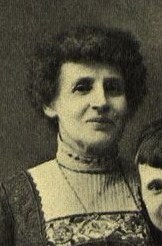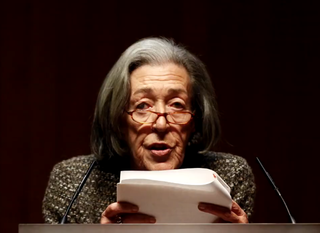Related Research Articles

Sophia de Mello Breyner Andresen was a Portuguese poet and writer. Her remains have been entombed in the National Pantheon since 2014.

Antônio José da Silva Fagundes Filho is a Brazilian actor, playwright, voice actor, and producer. Renowned for his several performances in stage, film and television, where he frequently works in telenovelas.

The Cinema of Portugal started with the birth of the medium in the late 19th century. Cinema was introduced in Portugal in 1896 with the screening of foreign films and the first Portuguese film was Saída do Pessoal Operário da Fábrica Confiança, made in the same year. The first movie theater opened in 1904 and the first scripted Portuguese film was O Rapto de Uma Actriz (1907). The first all-talking sound film, A Severa, was made in 1931. Starting in 1933, with A Canção de Lisboa, the Golden Age would last the next two decades, with films such as O Pátio das Cantigas (1942) and A Menina da Rádio (1944). Aniki-Bóbó (1942), Manoel de Oliveira's first feature film, marked a milestone, with a realist style predating Italian neorealism by a few years. In the 1950s the industry stagnated. The early 1960s saw the birth of the Cinema Novo movement, showing realism in film, in the vein of Italian neorealism and the French New Wave, with films like Dom Roberto (1962) and Os Verdes Anos (1963). The movement became particularly relevant after the Carnation Revolution of 1974. In 1989, João César Monteiro's Recordações da Casa Amarela won the Silver Lion at the Venice Film Festival and in 2009, João Salaviza's Arena won the Short Film Palme d'Or at the Cannes Film Festival. Several other Portuguese films have been in competition for major film awards like the Palme d'Or and the Golden Bear. João Sete Sete (2006) was the first Portuguese animated feature film. Portuguese cinema is significantly supported by the State, with the government's Instituto do Cinema e do Audiovisual giving films financial support.
Maria Teresa de Mascarenhas Horta Barros is a Portuguese feminist poet, journalist and activist. She is one of the authors of the book Novas Cartas Portugesas, together with Maria Isabel Barreno and Maria Velho da Costa. The authors, known as the "Three Marias," were arrested, jailed and prosecuted under Portuguese censorship laws in 1972, during the last years of the Estado Novo dictatorship. The book and their trial inspired protests in Portugal and attracted international attention from European and American women's liberation groups in the years leading up to the Carnation Revolution.

Carolina Michaëlis de Vasconcelos, born Karoline Michaelis was a German-Portuguese romanist.

Maria de Fátima de Bivar Velho da Costa was a Portuguese writer who was awarded the Camões Prize in 2002. She took part in the Portuguese Feminist Movement, and became one of the authors of the book Novas Cartas Portugesas, together with Maria Teresa Horta and Maria Isabel Barreno. The authors, known as the "Three Marias," were arrested, jailed and prosecuted under Portuguese censorship laws in 1972, during the last years of the Estado Novo dictatorship. The book and their trial inspired protests in Portugal and attracted international attention from European and American women's liberation groups in the years leading up to the Carnation Revolution.

Luis Carlos Verzoni Nejar, better known as Carlos Nejar, is a Brazilian poet, author, translator and critic, and a member of the Academia Brasileira de Letras. One of the most important poets of its generation, Nejar, also called "o poeta do pampa brasileiro", is distinguished for his use of an extensive vocabulary, alliteration, and pandeism. His first book, Sélesis, was published in 1960.

The Hermitage of Nossa Senhora dos Anjos, is a hermitage/chapel located in the village of Anjos, on the northcoast of the civil parish of Vila do Porto, on the island of Santa Maria in the Portuguese Azores.
Augusto Carlos Teixeira de AragãoComA • CavC • CavA • CavTE was a Portuguese officer, doctor, numismatist, archaeologist and historian. As an officer of the Portuguese army, he retired with the rank of general. Teixeira de Aragão is considered one of the "fathers" of Portuguese numismatics.

Maria Isabel Barreno de Faria MartinsGOIH was a Portuguese writer, essayist, journalist and sculptor. She was one of the authors of the book Novas Cartas Portugesas, together with Maria Teresa Horta and Maria Velho da Costa. The authors, known as the "Three Marias," were arrested, jailed and prosecuted under Portuguese censorship laws in 1972, during the last years of the Estado Novo dictatorship. The book and their trial inspired protests in Portugal and attracted international attention from European and American women's liberation groups in the years leading up to the Carnation Revolution.

Velho Chico is a Brazilian telenovela produced and broadcast by TV Globo that premiered on 14 March 2016, replacing A Regra do Jogo, and ended on 30 September 2016, being followed by A Lei do Amor.
Domingos Montagner Filho was a Brazilian actor, playwright and entrepreneur. He began his career in theaters and circuses, through the course of interpretation of Myriam Muniz. In 1997, Montagner formed La Mínima group, alongside Fernando Sampaio, and won the Shell Award for Best Actor. In 2003, he founded the Zanni Circus, of which he was artistic director.

Silvino Simões Santos Silva was a Portuguese-born cinematographer and photographer who emigrated and worked in Brazil. He is known for his role as director of the 1922 film No País das Amazonas, which was one of the earliest documentary films that depicted the Amazon rainforest. In addition to directing various other films about Brazil, Santos documented an expedition with the explorers Theodor Koch-Grunberg and Alexander H. Rice Jr. which was released as the 1924 film No Rastro do Eldorado.
Ana Margarida Taborda Duarte Martins de Carvalho is a Portuguese writer and journalist. The only Portuguese writer to be award with the Grande Prémio da Associação Portuguesa de Escritores (APE/DGLB) for each of her three successive works of literary fiction; they were for two novels and a short-story collection.
Sara Beirão was a Portuguese writer, journalist, women's rights activist and philanthropist. As an author, she is particularly known for fiction aimed at children and youth and for her work as publisher and editor of the Alma feminina feminist magazine.

Francine Benoît was a musician, teacher, composer, conductor, and music critic. She played an active role in Portuguese feminist organizations and was an opponent of the Estado Novo dictatorship, which ruled between 1933 and 1974. Born in France, she lived most of her life in Portugal and became a naturalised Portuguese citizen in 1929.
The Porto Femme - International Film Festival is an annual international film festival that aims to highlight, showcase, and publicize the work of artists and directors who identify as women. The film festival is held in Porto, Portugal.

Graça MoraisGOIH is a Portuguese artist. A member of the Academia Nacional de Belas-Artes of Portugal, she was made a Grand Officer of the Order of Prince Henry in 1997. She is married to the musician Pedro Caldeira Cabral.
References
- 1 2 3 4 Castro, Ilda Teresa de (2001). Cineastas Portuguesas 1874 - 1956. Câmara Municipal de Lisboa. pp. 108–129.
- 1 2 3 Lusvarghi, Luiza; Vieira, Camila (26 June 2020). "Rutler, Monique". Mulheres atrás das câmeras: As cineastas brasileiras de 1930 a 2018 (in Brazilian Portuguese). Estação Liberdade. ISBN 978-65-86068-07-8.
- ↑ Pereira, Ana Catarina (August 2014). "O adultério feminino mediado pelo olhar de Monique Rutler ou o charme discreto de uma burguesia republicana e falsa-moralista". RELICI: Revista Livre de Cinema. Universidade Federal do Paraná. 1 (2). ISSN 2357-8807 . Retrieved 15 February 2022.
- ↑ Jesus, Virgílio (15 March 2018). "Novos Membros da Academia Portuguesa de Cinema". Magazine HD (in European Portuguese). Retrieved 15 February 2022.
- ↑ César, Castro (18 June 2019). "Porto Femme com 116 filmes e homenagem a Monique Rutler - JPN". JPN (in European Portuguese). Retrieved 15 February 2022.